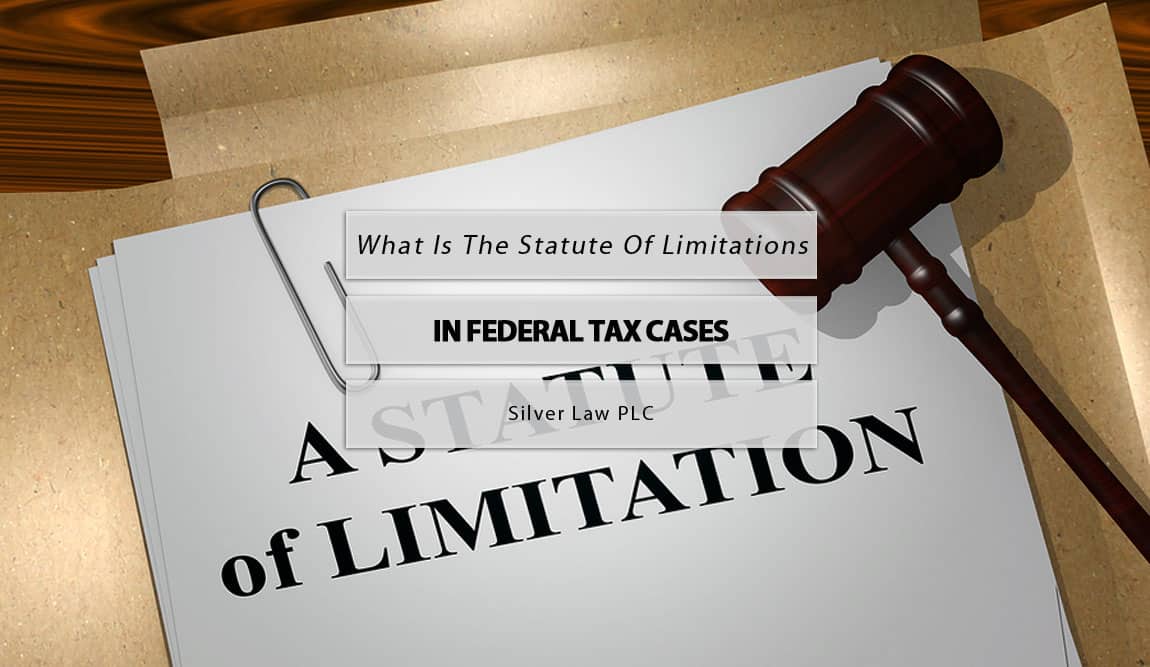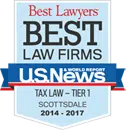How Silver Law Can Help Represent You in Phoenix Criminal and Civil Tax Litigation How…
What is the Statute of Limitations in Federal Tax Cases?
You know that you need to hang onto copies of your tax returns and your relevant forms and receipts after you file each year, but you may wonder just how many years’ worth of returns you need to save. How long do these forms need to be taking up space in your office?
Fortunately, there is a clear answer on this since the laws establish a statute of limitations. What that means is that after a certain number of years have passed, the IRS cannot look at your old tax returns to audit you.

Of course, with all legal matters, there is always an “it depends.” In the case of your tax returns, the statute of limitations depends on whether the return was filed and whether fraudulent information was included on the return. Your tax lawyer can help you better understand how the law applies to your personal returns, but here is some basic information to help you understand the laws:
Basic Time Limit
When you file a return, the IRS typically has three years to audit the return and make proposed adjustments via a notice of deficiency. These audits are meant for simple mistakes, such as being creative with your deductions or overstating your mileage.
The clock starts running on filed returns either on the date the return was filed or the date is was due, whichever is later. That means that if you were an early bird and filed your return in February, the statute of limitations will be three years from that April 15th. However, if you file your return late or get an extension, the statute of limitation will be three years from that date.
Extended Time Limits
If you fail to report all your income, the statute of limitations is extended. If you fail to report 25 percent or more of your income — or if you have another dispute that involves 25 percent or more of your income — the statute of limitations for the IRS to take action is extended to six years.
The IRS can also ask for an extension on the basic time limit. While the agency is supposed to audit tax returns within three years, it doesn’t always have the resources to get to the returns it has flagged within that time. In those cases, it might send you a letter asking you for an extension, usually of a year. You are not required to agree and I recommend you do not sign the statute extension as it gives the IRS more time to propose adjustments against you. Again, you should consult with a tax lawyer to know the best course of action for your particular case.
No Statute of Limitations
If the IRS finds evidence that you have submitted a false or fraudulent return, there is no statute of limitations on its ability to take action against you. If you do not file a tax return and the IRS has evidence of income for that year, there is also no statute of limitations on its ability to take action against you.

The Arizona tax attorneys at Silver Law PLC represent clients in civil and criminal tax matters, including routine audits, offshore reporting issues, and litigation. Our attorneys can help you resolve your tax issues while minimizing your risk of fines and penalties including jail time. We work to minimize what you owe by negotiating settlements, fighting to have charges dismissed, or helping you find ways to reduce the tax you owe and resolve whatever issues the IRS is scrutinizing. Call us in Arizona to find out how we can help you.

Email: lchapman@silverlawplc.com
Website: taxcontroversy.com
Arizona Location
7033 E. Greenway Pkwy, Ste 200
Scottsdale, AZ 85254
Office:(480) 429-3360
Henderson Location
410 South Rampart Blvd, Suite 390
Las Vegas, Nevada 89145
Office: (702) 801-1000
Las Vegas Location
410 South Rampart Blvd, Suite
390 Las Vegas, Nevada 89145
Office: (702) 726-6819
San Diego Location
7676 Hazard Center Drive, Suite
1525 San Diego, CA 92108
Office: (619) 387-3790
Coronado Location
724 1st St.
Coronado, CA 92118
Office: (619) 612-5337
Utah Location
11576 S. State Street, Suite 1002
Draper, Utah 84020
Office: (801) 340-7514
















Leave a Reply
You must be logged in to post a comment.